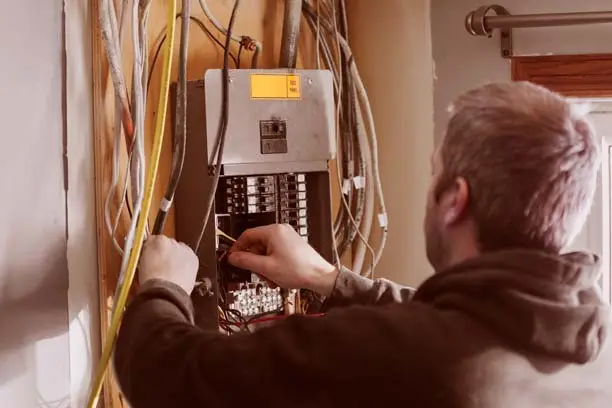Ignoring These Home Repairs May Cost You


Your home is likely your biggest investment — and nobody wants to deal with major house repairs when protecting that investment. Every house needs maintenance to stay in its best shape. Whether your home was recently built or has stood the test of time, a little preventative home maintenance can save you money in the long run.
Trying to avoid major house repairs, but not sure where to start in your home inspection? Here are the eight problems every homeowner should look for — and how to fix them.
When composition or asphalt shingles are loose, shingles are missing or materials are damaged, the result is often moisture seeping into your attic or ceiling crawlspace. If left untreated, these could lead to wood rot or mold and require expensive repairs. There’s a reason that roofing professionals often suggest you inspect your roof a couple times per year as part of your routine home maintenance. If you are confident in your home repair DIY abilities, you should be able to visually inspect your roof and replace aging shingles.
If your basement walls or floor have cracks that allow water to seep in every time it rains, you may have a problem with your foundation that can lead to major home repairs. When water pools around your foundation, the soil can shift around your house and cause your foundation to move and crack. This weakens your structure and allows water into your home. If you notice vertical cracks or your walls “weeping” after it rains, call a contractor who focuses on foundation repair.
The foundation is one of the most expensive things to fix in a house, so it is important to catch issues early. The fix may run a couple of thousand dollars now, but leaving the problem untreated can cost 10 times more when structural home repairs are needed later.
If you notice that your water pressure is weaker than normal, or you see pools of water under the sink, you may be dealing with a leaky pipe. Over time, older pipes can corrode and crack, causing you to need major house repairs. Leaky pipes could lead to flooding and issues with drywall, flooring, insulation and more if the problem isn’t taken care of quickly. If you are confident in your home repair abilities you could replace a worn pipe yourself, but a safer bet is to contact a plumber for assistance.
Do your lights often flicker? Do you have a hard time running appliances in the kitchen if someone is using a hair dryer in another room? Do you often blow fuses in your house? If you answered yes to any of those questions, you may be drawing too much power through an outdated wiring system. Faulty or overworked electrical systems cause 45,000 fires each year. Don’t let your home be among the statistics. To avoid this common fire hazard, contact an electrician who will be able to run a series of tests, and ,if necessary, help you upgrade your electrical panel.
Do you have stately old trees on your property? They may be beautiful, but they can also cause major problems. If you hear their branches brushing against your walls or roof during a storm, beware. That tree may be diseased and won’t keep its branches during high wind. This in turn can cause severe property damage and be unsafe for you and your family, too. Many homeowners can trim excess weight off trees if they have the proper tools. If branches are located near power lines, contact professional tree-trimmers to take care of business.
When you sit next to a window, do you feel a draft? That may be costing you money. Newer, energy-efficient windows will help cut your electrical costs — and they’ll improve your home’s aesthetics as well.
A worn, outdated sump pump can get overwhelmed in times of heavy rain, and the result might be leaks and water in the basement. Check the batteries on your pump, especially before the rainy season or if you experience heavy, soaking rain. If your sump pump is over seven or eight years old, have a plumber inspect it on an annual basis. Replacing worn pumps can cost a few hundred dollars, but they’ll save thousands by preventing sump pump failure as well as the costs that come with flood cleanup.
After a heavy rain, does water collect near your home’s foundation? The problem may be your gutters. Gutters and downspouts are designed to guide water away from your home, and thus prevent water from running down your foundation. But clogged gutters can have the opposite effect, eventually leading to a need for major house repairs. The easiest thing a homeowner can do is inspect and clean gutters twice a year, removing dead leaves and any obstructions, allowing water to flow freely.
If you know what to look for, you can save yourself thousands of dollars in home repairs by doing preventative maintenance. Invest in basic tools and learn how to maintain your home. Another crucial tool that will save you money is the right homeowners insurance. Contact your Farm Bureau agent to ensure your home is protected, rain or shine.